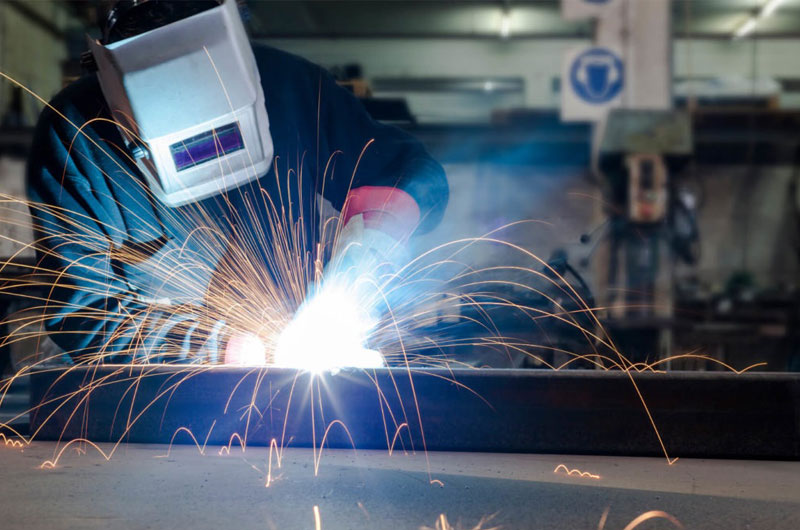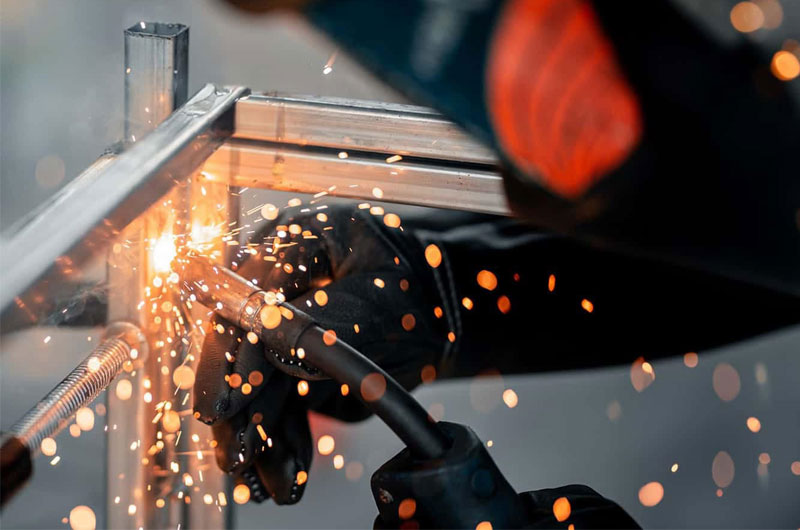In the world of metal fabrication, no two projects are exactly alike. Industries ranging from aerospace and automotive to oil & gas, construction, and medical equipment manufacturing often require specialized metal parts that standard welding techniques or mass-market components simply cannot accommodate.
This is where custom welding service comes into play, offering flexibility, precision, and innovation for crafting unique metal components tailored to specific applications.
Whether it’s unusual geometries, challenging materials, or stringent performance requirements, custom welding services are crucial to bringing these complex projects to life.
Why Custom Welding Is Necessary
The demand for custom welding arises when standard welding techniques, materials, or procedures fail to meet the functional or aesthetic requirements of a product. Common scenarios include:
- Prototype Development: When designing new products, engineers often require custom welds to test form and functionality.
- Low-Volume Production: Specialized machinery or architectural features might call for a limited number of uniquely welded parts.
- Repair & Retrofitting: Older equipment or infrastructure often involves components no longer in production, requiring tailor-made welding repairs.
- Exotic Metals: Materials like titanium, Inconel, magnesium, or duplex stainless steel need advanced welding knowledge.
Types of Custom Welding Techniques

There is no one-size-fits-all method in custom welding. The optimal technique depends on factors like metal type, component geometry, strength requirements, and budget. Here are the most commonly used techniques in custom welding:
1. TIG Welding (GTAW – Gas Tungsten Arc Welding)
TIG welding is a highly precise and clean welding process ideal for thin sections of stainless steel, aluminum, and non-ferrous metals. It offers superior weld quality and control, making it well-suited for projects with strict tolerance demands or aesthetic considerations.
2. MIG Welding (GMAW – Gas Metal Arc Welding)
MIG welding offers greater speed than TIG welding, making it ideal for thick materials or high-volume production. It’s versatile, cost-effective, and commonly applied in custom fabrication of automotive parts and industrial machinery.
3. Stick Welding (SMAW – Shielded Metal Arc Welding)
Best for outdoor or less controlled environments, stick welding can be used on rusty or dirty surfaces. It’s commonly employed for structural repairs or construction components.
4. Laser Welding
Laser welding is ideal for micro-welding or precision jobs with minimal heat input. It’s used in medical device manufacturing, electronics, and high-end automotive work.
5. Robotic Welding
When repeatability and speed are essential, even in custom batches, robotic arms programmed for unique paths can deliver consistent welds. Custom jigs and fixtures are often used to accommodate one-off geometries.
Key Benefits of Custom Welding Services
1. Design Flexibility
Custom welding enables clients to realize unconventional designs that would otherwise be impossible with standard fabrication methods. It supports complex geometries, irregular contours, and tight tolerances.
2. Material Versatility
Whether working with aluminum, copper, high-strength alloys, or dissimilar metals, custom welding provides the expertise and technology needed to handle them all.
3. Cost Optimization
For small-batch production or prototypes, custom welding is often more economical than mass-production tooling. It avoids unnecessary material waste and shortens time-to-market.
4. Enhanced Performance
Weld quality can significantly affect the mechanical strength and fatigue resistance of a part. Custom welding allows for fine-tuned control to meet precise performance criteria.
5. Repair and Restoration
Custom welding plays a vital role in repairing costly or discontinued parts, helping extend equipment lifespan and minimize replacement expenses.
Industries That Rely on Custom Welding
Aerospace
Aircraft components often involve exotic alloys and strict tolerances. Custom TIG or laser welding is used to fabricate turbine parts, frames, and ducting systems.
Automotive and Motorsport
Custom exhausts, suspension parts, roll cages, and prototype engine components benefit from specialized MIG, TIG, and robotic welding.
Oil & Gas
Pipeline repair, pressure vessels, and offshore rigs demand corrosion-resistant, high-integrity welds often customized for harsh environments.
Medical Equipment
Surgical tools, implant components, and diagnostic machines need biocompatible materials and extremely clean welds, often performed using laser or micro-TIG welding.
Architectural Metalwork
Custom railings, sculptures, facades, and ornamental fixtures rely on tailored welding to achieve both structural integrity and visual appeal.
Challenges in Custom Welding
While custom welding brings many advantages, it also presents technical and logistical challenges:
- Material Compatibility: Welding dissimilar metals can lead to brittleness or cracking unless filler metals and techniques are carefully chosen.
- Distortion Control: Custom parts with thin walls or complex shapes require skillful heat management to prevent warping.
- Fixture Design: Specialized jigs or fixtures are often required to securely position unique components during the welding process.
- Quality Assurance: Non-destructive testing (NDT), X-rays, or dye penetrant tests are essential to verify weld integrity in critical components.
Selecting the Right Custom Welding Company
Selecting the ideal welding service provider is vital to ensuring your custom project’s success. Here are the key factors to evaluate:
- Experience and Certifications: Look for AWS-certified welders or companies with ASME, ISO 9001, or NADCAP certification for aerospace-grade work.
- Material Handling Capabilities: Ensure the provider has experience with the metals and alloys used in your project.
- Equipment and Facilities: Advanced welding techniques require access to modern tools like CNC plasma cutters, laser welders, and robotic arms.
- Engineering Support: Top-tier welding shops can optimize your design for better manufacturability and lower production costs.
- Quality Control Processes: Rigorous inspection and documentation practices ensure your welded parts meet all functional and safety requirements.
Case Study: Custom Welding in Action
Problem: A client in the renewable energy sector needed a prototype heat exchanger made of stainless steel and copper. Traditional manufacturing methods were too slow and costly for rapid testing and prototyping needs.
Solution: A custom welding team used TIG welding with specialized filler material to join dissimilar metals. Custom fixturing ensured alignment, and low-heat techniques prevented distortion. The prototype was completed in 10 days, fully functional and ready for performance evaluation.

